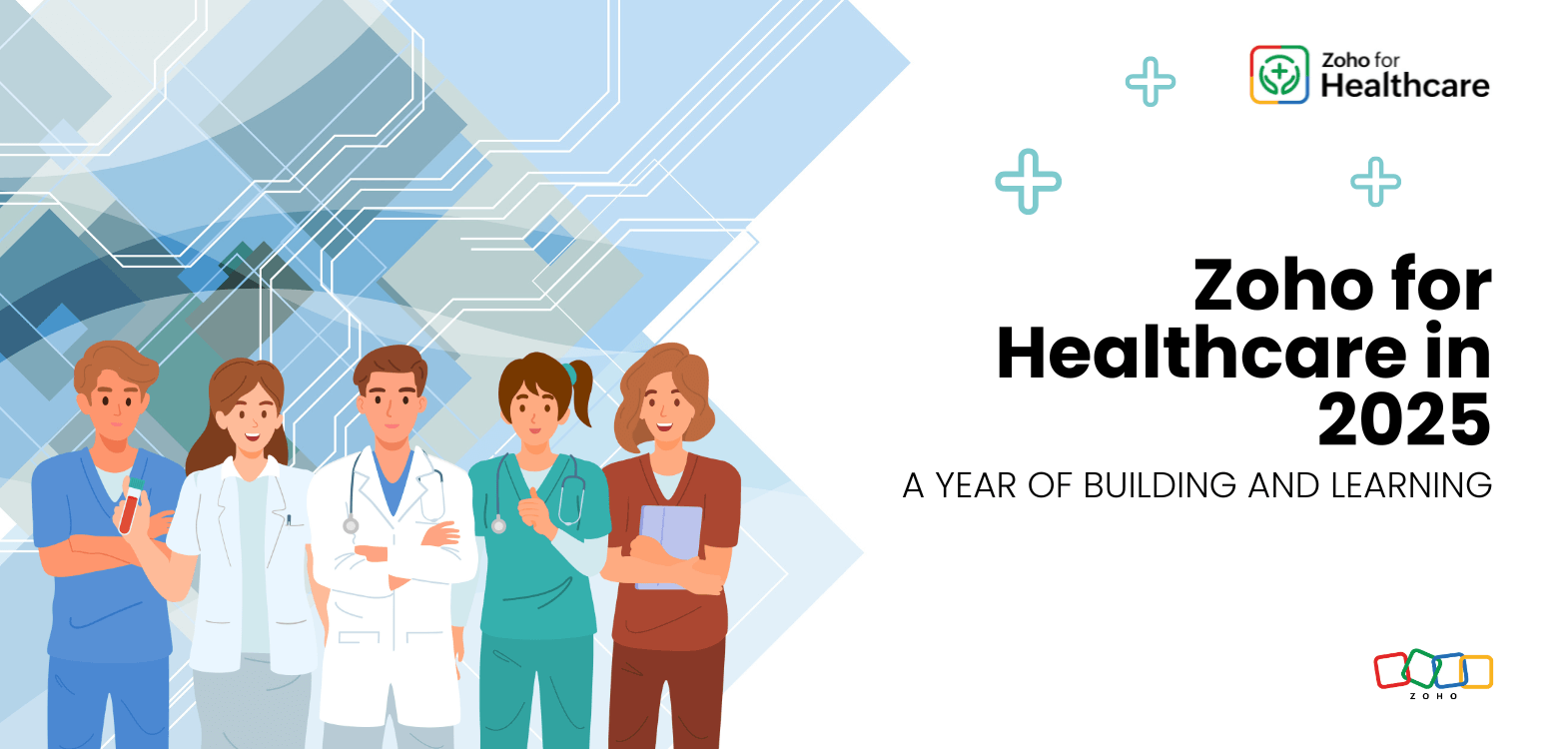- HOME
- Events and Industry News
- Celebrating India's National Doctors' Day: Revolutionizing health care through technology
Celebrating India's National Doctors' Day: Revolutionizing health care through technology
- Last Updated : July 1, 2023
- 448 Views
- 3 Min Read
National Doctors' Day recognizes and honors the tireless efforts and contributions of India's medical practitioners. Doctors have been on the front lines of public safety and health during COVID-19, AIDS, Ebola, and many other crises. Their contributions have impacted human health and life expectancies exponentially.
Through the years, technology has played a pivotal role in improving the way doctors diagnose, treat, and care for their patients. It has also given doctors instant access to vast databases, research papers, and other online resources.
Telehealth: Bridging the gap for enhanced accessibility
Telehealth is a game-changing practice that helps doctors connect with patients remotely using audiovisual communication. Thanks to telehealth, doctors can monitor patients and their vital signs remotely, review their progress, adjust treatment plans, and provide ongoing support without requiring in-person visits. Telehealth also helps with the monitoring and care of patients across health care departments.
According to Fortune Business Insights, the telehealth market is projected to grow from $90.74 billion in 2021 to $636.38 billion in 2028. A growing number of patients are turning to telemedicine for health consultations and health-related information, hoping to receive more comprehensive and specialized treatments
Telehealth allows doctors to reach patients who may have trouble accessing healthcare facilities in remote or underserved areas. Plus, doctors can now consult with more patients in a day, as virtual consultations are often shorter than in-person visits.

Artificial intelligence (AI) in diagnostics: Assisting doctors with precision
AI-powered diagnostic tools have empowered doctors with more accurate and efficient diagnostic capabilities. Coupled with other rapid advances, AI-based systems are already improving the accuracy of diagnoses and treatments across specializations.
AI is being used to develop treatments that will help individuals suffering from chronic ailments, such as cancer, and hopefully find a cure for them. The use of machine learning algorithms and data analysis helps AI tools analyze medical imaging, discover patterns, and detect anomalies. It also helps doctors with the early detection of diseases like cancer, cardiovascular conditions, or rare genetic disorders, leading to timely intervention and improved patient outcomes.
Electronic health records (EHRs): Streamlining patient care
The role of electronic health records (EHRs) is to enhance patient care and simplify communication between health care providers. EHR systems consolidate patient data, including medical history, test results, and prescriptions, into a centralized and accessible format. Clinical record digitization has become an important aspect of improving medical care frameworks.
Its advantages include reduced paperwork, faster access to critical data, and improved care coordination. Refer to our previous blog post to learn more about EHR.
Wearable devices: Actively managing patient health
Wearable devices, such as smartwatches, fitness trackers, and biosensors, help collect and monitor data related to heart rate, sleep patterns, and more. In healthcare, wearable technologies give doctors up-to-date patient data, allowing them to make better judgements based on precise and accurate data.
With the interoperability between wearable technology and EHRs, collaboration among health practitioners for diagnostic purposes becomes easier. However, integration of data between wearable devices and EHRs requires a dedicated team. The team should have knowledge of medical standards, processes, and privacy considerations. This helps safeguard patient information and uphold their fundamental rights in an increasingly digital world.
Precision medicine: Tailoring treatment strategies with genomics
Precision medicine is an advanced approach where genomics and applied science intersect to form personalized treatment strategies. Genetic testing plays a crucial role in precision medicine and aids in creating customized medical treatment plans. Genetic analysis is also helpful, as it helps medical professionals identify specific genetic mutations or alterations driving a disease. This enables targeted therapies that are more effective and less toxic than conventional treatments.
Advancements in genetic testing and analysis have enabled doctors to understand patients' unique genetic makeups and identify genetic predispositions. Precision medicine has revolutionized the treatment of diseases like cancer, rare genetic disorders, and autoimmune conditions. It offers clear advantages to all parties involved, and helps with earlier diagnosis, improved disease prognoses, and better outcomes.
Celebrate the unwavering commitment of our doctors
National Doctors' Day is an ideal opportunity to acknowledge the transformational power of applied science in healthcare. Technology is reshaping the medical landscape, with everything from telemedicine to AI diagnostics, improving patient care and its outcomes. By embracing this progression and invention, we can support our healthcare heroes, while also propelling medicine towards a more connected future.



